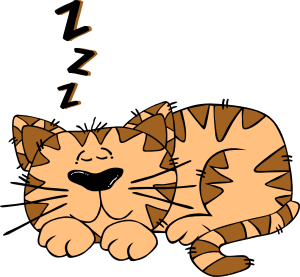About
Ask the Coach - If you don't snooze, do you lose?
What is the influence of sleep on your performance, how important is it? Hormones, Recup, energy etc! - Jean (@Mambaa24)
Since endurance sports are increasing in popularity, it is very common for athletes to work full-time jobs, have a family, and try to get in 10-20 hours of training a week. Add in some social commitments and we have a very full day. What gets pulled first - usually sleep time. And you might feel fine as you “adjust” to reduced sleep. But is that really the case. When we don’t get enough sleep, especially chronic lack of sleep, we experience the following physiological symptoms:
- Reduced Human Growth Hormome (HGH) production - a hormone key to to muscle and tissue repair. One of the keys to being an athlete is being able to recover from the training stress we put on our body. On top of that is life stress from family and work. Sleep is the time that we allow our bodies to regenerate itself, and HGH is a key to rejuvenation.
- Increased cortisol production - cortisol is a stress hormone. Cortisol is involved with regulating blood pressure and is a counteracts insulin, therefore keeps blood sugar levels higher than they should be. Cortisol also is involved with the functioning of the immune system and helps to regulate inflammation.
- Glucose metabolism is slowed. Glucose metabolism is important for athletes, as that is how we get energy! We want to keep this system as efficient as possible!
- Reduced levels of leptin - a hormone related to satiety, and increased levels of ghrelin - a hormone that stimulates appetite. For this reason, lack of sleep has been associated with weight gain - if our ghrelin levels go up, we will feel more hungry and if leptin levels are down, we won’t get the signals that we’ve had enough to eat. Monitoring nutrition is key for the athlete.
Due to the above factors, missing out on your daily Zs can definitely impact your performance. My recommendation is to consider sleep as another piece of your training. Schedule your bedtime so you get enough sleep for your needs. Reduce your training load if you aren’t getting enough sleep. Some athletes will even take the day off or modify a workout to something much easier if they got less than adequate (<6 hours) sleep the night before. Take a short nap during the middle of the day if you can, especially if you are working out twice a day. You can also consider using a tools to help monitor your sleep, such as the Zeo Sleep Manager and RestWise.com. There is even a company out there that sells “performance sheets” that are supposed to help you sleep better.
Sleep is very important to your recovery.. Don’t neglect your Zs and you’ll find that you will train better, recover faster, and probably race better as well. Happy Sleeping!

References:
http://healthysleep.med.harvard.edu/healthy/matters/consequences/sl...
http://www.webmd.com/sleep-disorders/excessive-sleepiness-10/immune...
http://sportsmedicine.about.com/od/sampleworkouts/a/RestandRecovery...
http://sportsmedicine.about.com/cs/conditioning/a/aa062800a.htm
http://hr.unm.edu/articles.php?article=sleep-and-recovery-from-exer...
http://www.buzzle.com/articles/high-cortisol-levels-symptoms.html
© 2026 Created by Tim Bergsten.
Powered by
![]()

You need to be a member of Pikes Peak Sports to add comments!
Join Pikes Peak Sports